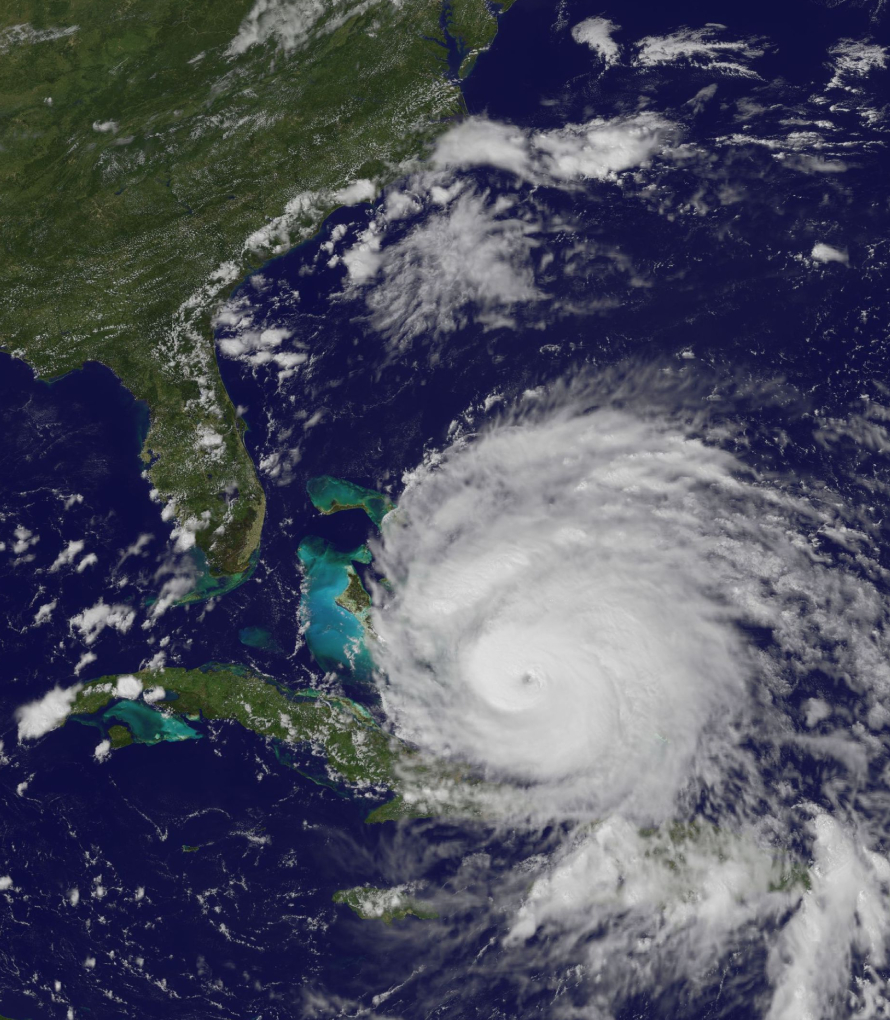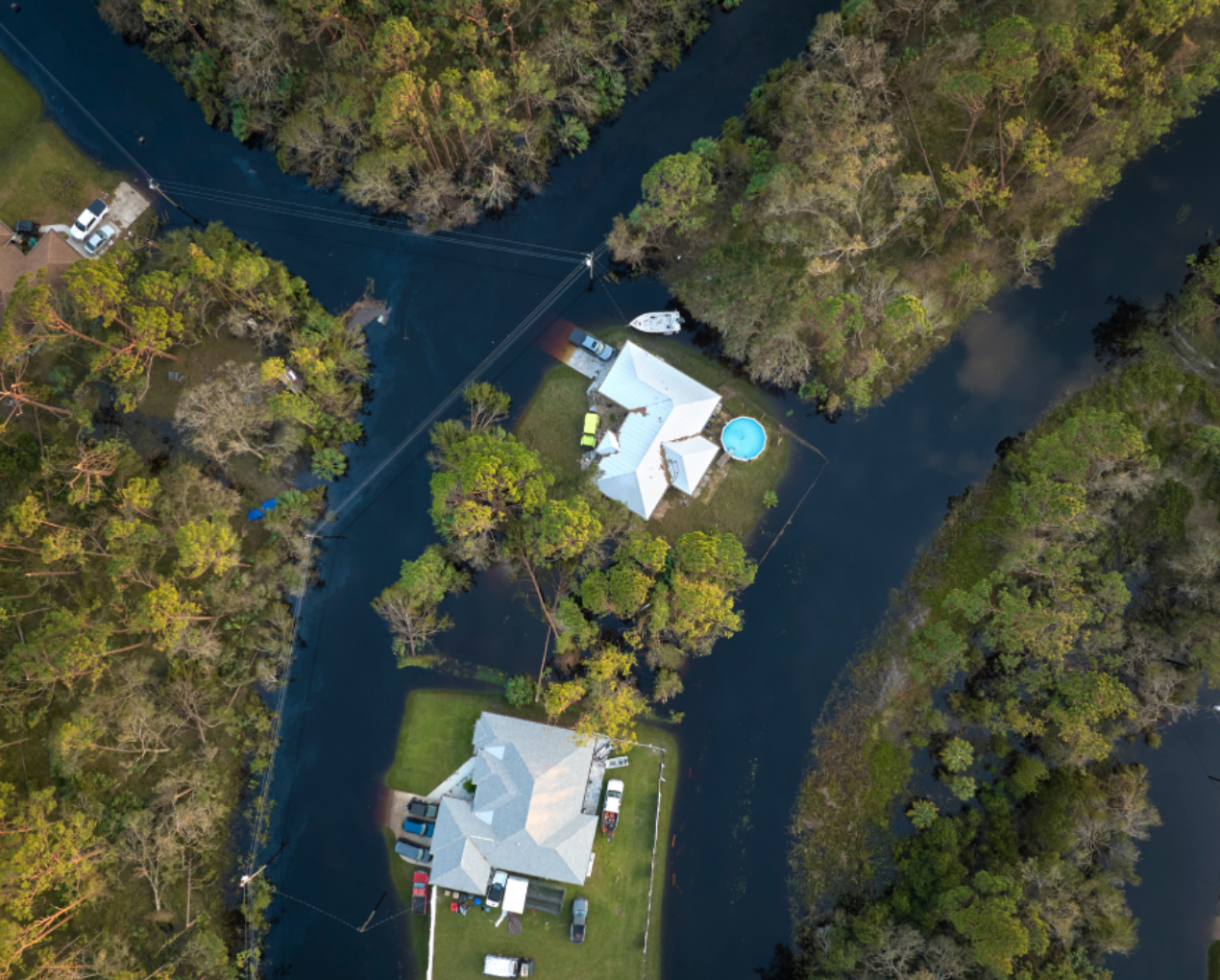Tropical Cyclones


Overview of Research
Tropical cyclones (TCs) frequently impact Florida, primarily during the Atlantic Ocean’s hurricane season from June through November. Notable hurricanes to directly affect Florida in recent years include Idalia (2023), Ian (2022), Nicole (2022), Sally (2020), Michael (2018), and Irma (2017), each causing significant damage through intense winds, storm surge, and flooding. Currently, the Florida BRACE program is conducting research related to the public health impacts of tropical cyclones.
- The Florida BRACE team is evaluating Rule:59A-4.1265 – Emergency Power Rule (EPR) which was passed shortly after Hurricane Irma crippled Florida’s power grid and exposed healthcare deficiencies. As a result of power outages and high heat following the storm, twelve nursing home residents died from high indoor heat exposures. The EPR is the nation’s first statewide law requiring nursing homes (but not independent or assisted living faculties) to have sufficient backup power to support air conditioning. According to the EPR, indoor temperatures must remain below 81°F for 96 hours in a sufficiently large area to accommodate residents. Florida BRACE is assessing how nursing homes across the state are adapting to the compounding risks from tropical cyclones and heat.
- The Florida BRACE team is developing a Climate Impacts Compendium on tropical cyclones that will: 1) provide a current state of the science on the relationship between climate change and hurricane activity, 2) demonstrate the associations between tropical storms/hurricanes and adverse health outcomes, including excess deaths from direct and indirect causes, adverse birth outcomes, and mental health, and 3) the disparate health impacts of climate-related disasters.
- The Florida BRACE program developed a hazard profile on the Health Effects of Tropical Storms and Hurricanes in Florida, as well as a case study summary of the 2004 Hurricane Season. Additional information about tropical cyclones in Florida and recent post-storm summary reports are available from the Florida Climate Center.
Relevance
In the post-implementation period of the EPR, our evaluation study seeks to understand the effects of the EPR and what lessons can be learned to promote greater resilience for vulnerable populations. This analysis will expand current knowledge and future guidance supporting public health resilience efforts pertaining to extreme heat, power loss, and natural disasters.
Related Work
Past Publications
The Florida BRACE team has studied the public health resilience of vulnnerable populations to tropical cyclones in Florida, including adverse health outcomes, evacuation needs, and sheltering programs. Select examples of this work include:
- Harville, E.W., K. Pan, L. Beitsch, S.P. Sherchan, E. Gonsoroski, C. Uejio, and M.Y. Lichtveld. (2023). Hurricane Michael and Adverse Birth Outcomes in the Florida Panhandle: Analysis of Vital Statistics Data. Disaster Medicine and Public Health Preparedness. 17:e94. doi:10.1017/dmp.2021.367
- Holmes, T.J., P.C. Williams, S. Wong, K. Smith, J.T. Bandzuh, and C.K. Uejio. (2022). Assessment of an evacuation shelter program for people with access and functional needs in Monroe County, Florida during Hurricane Irma. Social Science & Medicine, 206, 115108. https://doi.org/10.1016/j.socscimed.2022.115108
- Pan, K., E. Gonsoroski, C. K. Uejio, et al. (2022). Remotely sensed measures of Hurricane Michael damage and adverse perinatal outcomes and access to prenatal care services in the Florida panhandle. Environ Health 21, 118. https://doi.org/10.1186/s12940-022-00924-1
- Pan, K., L. Beitsch, E. Gonsoroski, S. P. Sherchan, C. K. Uejio, M. Y. Lichtveld, and E. W. Harville. (2021). Effects of Hurricane Michael on Access to Care for Pregnant Women and Associated Pregnancy Outcomes. Int J Env Res Pub He, 18, no. 2: 390. https://doi.org/10.3390/ijerph18020390
Engagement Activities
The Florida BRACE program produced several webinars on the topic of tropical cyclones, including a webinar on an evaluation of Monroe County's Special Needs Shelter Program response during Hurricane Irma and a webinar on the state of the science on how climate variability and change affect tropical cyclone behavior. These can be viewed on our Webinars page.
Florida BRACE team members are engaged in several national and regional professional associations and organizations that address community resilience to natural hazards and disasters across various disciplines, including:
- American Planning Association
- American Association of State Climatologists
- Association of American Geographers
- American Meteorological Society
- American Public Health Association
- Florida Department of Health's Environmental Health Tracking Program Advisory Group
